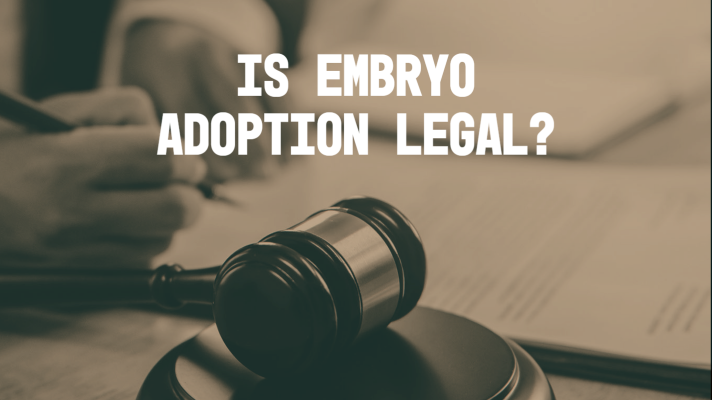In many countries, adopting a child has been legal for less than 100 years. In the United States, modern adoption laws did not appear until the passage of the Massachusetts Adoption of Children Act in 1851. Embryo adoption, while less well known, has been happening for 25 years.
In the United States, an embryo is not considered a person, but property. As a result, adoption laws do not apply. Instead, the process of donating embryos to a recipient family is, from a legal perspective, managed using property law. This allows one family to donate or place their remaining embryos to another family while protecting all parties involved with a legal contract. While perhaps not ideal for some, the system provides a legal framework for an embryo “owner/donor” to give their remaining embryos to another family.
Embryo donation and adoption process involves adoption agreement and relinquishment forms, which are legal contracts between the donor and recipient couples. The contracts formalize the placing parent’s relinquishment of their parental rights prior to any embryos being used for a frozen embryo transfer by the adopting family. Once the contract is finalized, the embryos belong to the adopting parents. While many courts are reluctant to classify embryos as property, they also do not characterize them as human beings. As a result, embryo adoption programs may differ in how they define embryos in their legal agreements. Some may refer to embryo donation as a transfer of property while others may incorporate traditional adoption language into their legal documents.
At the time of birth, the adoptive couple is fully recognized as the legal parents to any children who are born. The woman who gives birth is recognized as the legal mother and the man to whom she is married at the time of pregnancy and birth is recognized as the legal father. These individuals’ names are placed on the child’s birth certificate. (The exception to this is surrogacy, which has its own set of codified legal contracts and requirements in the United States.)
For more information the legal aspects of embryo donation and adoption, watch our webinar here or visit EmbryoAdoption.org.


Recent Comments